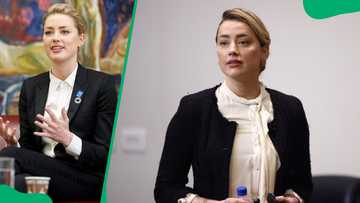Fatima Meer: Exploring the life of a South African activist, educator, and author
Fatima Meer and her family paid the price for what South Africa is today. A vocal anti-apartheid activist, she narrowly escaped assassination, had her husband arrested and charged with treason, and her son exiled for over a decade. Nonetheless, Fatima stopped at nothing to fight for what she believed in.
Regardless of how long we have lived, we must get up and shout!
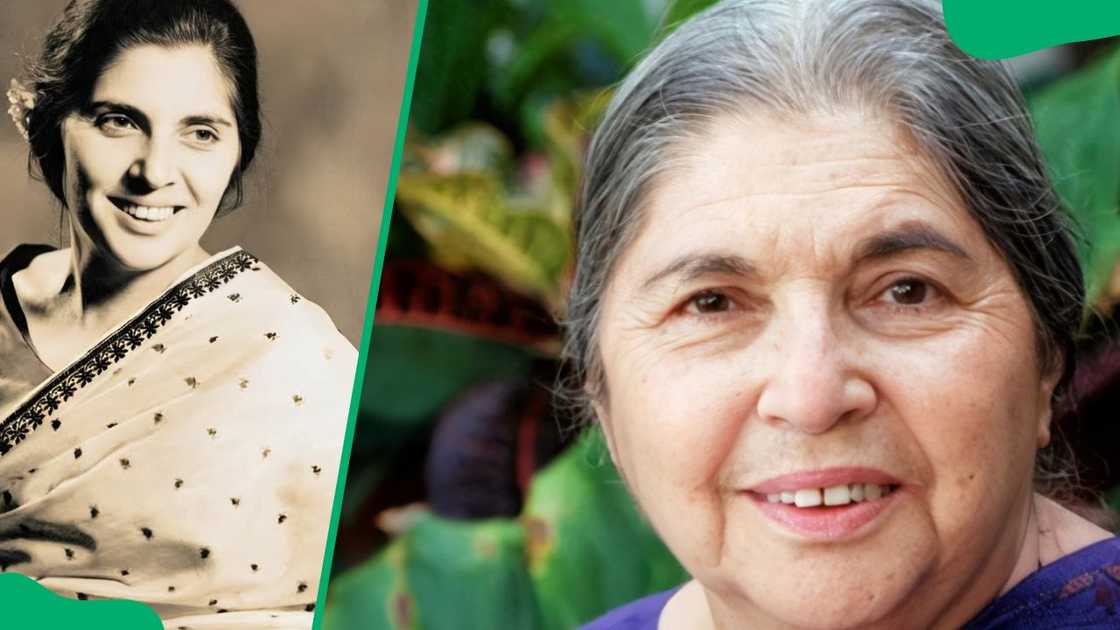
Source: Twitter
TABLE OF CONTENTS
- Key takeaways
- Fatima Meer's profile summary
- Insights into how Fatima Meer's background influenced her passion for activism
- Fatima Meer was an alumna of the University of Natal
- Exploring Fatima Meer's career as a political activist
- What charity work was Fatima Meer involved in?
- Fatima Meer's most famous book is about Nelson Mandela
- She was the first non-White sociology lecturer at the University of Natal
- FAQs
Key takeaways
- At 16, Fatima helped raise funds for famine relief in Bengal, India.
- She founded the Black Women's Federation (BWF) alongside Winnie Mandela in 1975.
- In 2004, Fatima Meer was ranked among the Top 100 Greatest South Africans.
Fatima Meer's profile summary
Full name | Fatima Meer |
Gender | Female |
Date of birth | 12 August 1928 |
Date of death | 12 March 2010 |
Age at death | 81 years old |
Zodiac sign | Leo |
Birthplace | Durban, Natal, South Africa |
Place of death | Durban, KwaZulu-Natal Province |
Nationality | South African |
Ethnicity | Mixed |
Religion | Muslim |
Alma mater | University of Natal |
Hair colour | Black |
Eye colour | Dark brown |
Sexual orientation | Straight |
Marital status | Married |
Spouse | Ismail Chota Meer |
Children | 3 |
Parents | Rachel Farrell and Moosa Ismail Meer |
Profession | Writer, academic, activist |
Insights into how Fatima Meer's background influenced her passion for activism
Fatima Meer was born on 12 August 1928 in Durban, Natal, South Africa. Her mother, Rachel Farrell, was Moosa Ismail's second wife.
She was of Portuguese and Jewish descent. Through her father, who was an editor of The Indian View newspaper, Fatima became conscious of the racial discrimination in her country.
Fatima Meer was an alumna of the University of Natal
Fatima attended the Durban Indian Girls High School. While still a student, she advocated for the formation of the Student Passive Resistance Committee to help raise funds for the 1946 to 1948 passive resistance campaign by the Indian community.
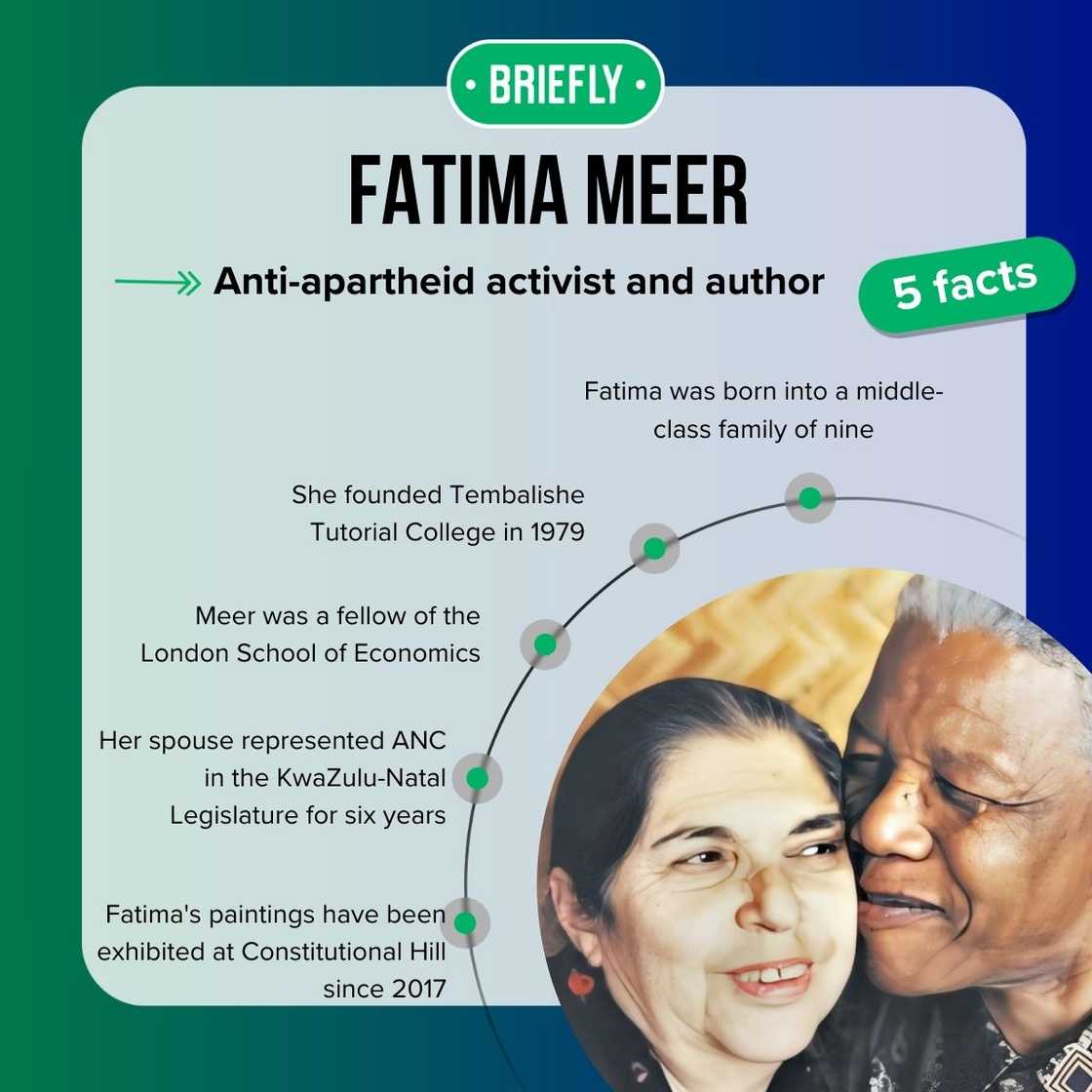
Source: Original
During this period, Fatima Meer met anti-apartheid activists Monty Naicker and Kesaveloo Goonam. She later attended Wits University for a year and was a member of the Non-European Unity Movement Trotskyism group.
Fatima earned her Bachelor's and Master's degrees in Sociology from the University of Natal, now the University of KwaZulu-Natal.
Exploring Fatima Meer's career as a political activist
In 1950, Fatima and Goonam became the first female executives of the Natal Indian Congress. This would mark the beginning of her activism career.
What happened to Fatima Meer in 1952?
According to Britannica, Fatima rallied a group of 69 women to form the Durban and District Women's League in 1952 to mend the broken relationship between Indians and Africans after the race riots.
The same year, Fatima Meer was banned for three years for her strong opposition to the National Party's implementation of the apartheid rule.
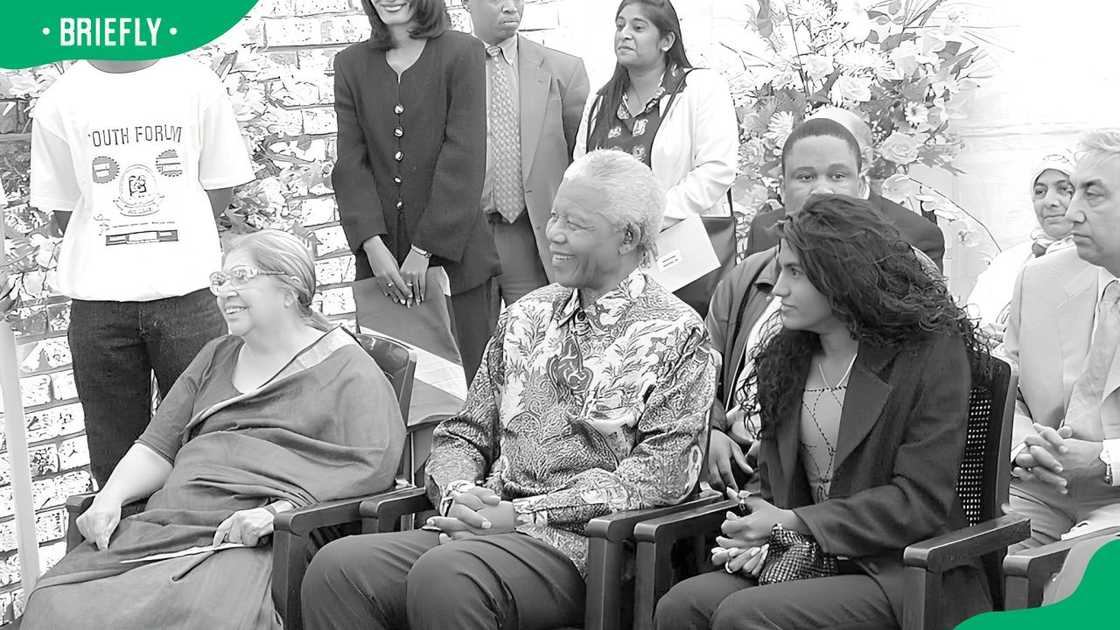
Source: Getty Images
She was at the forefront of the 1956 Women's March against the introduction of the Apartheid pass laws for Black Women. One of Fatima's most famous quotes from the time:
As a woman, I carry my past every day in my heart. But I must continue fighting because I cannot walk freely in the streets.
Assassination attacks against Fatima Meer for her political views
A year after Fatima Meer was appointed BWF's first president, she was banned for five years. In June 1976, the activist was arrested and charged under Section 6 of the Terrorism Act. After her release, she survived an attack and a shooting.
In 1994, Fatima turned down a parliamentary seat offer due to her preference for non-governmental endeavours. Five years later, she rallied Indian people against voting for White parties through the Concerned Citizens' Group.
What charity work was Fatima Meer involved in?
In 1969, the philanthropist donated proceeds from her book sales to aid in building the Gandhi Museum and Clinic.
Additionally, she led an operation to rescue 10,000 Indian flood victims and negotiated permanent residence for them. Meer sought scholarships for several students to study in the US and India.
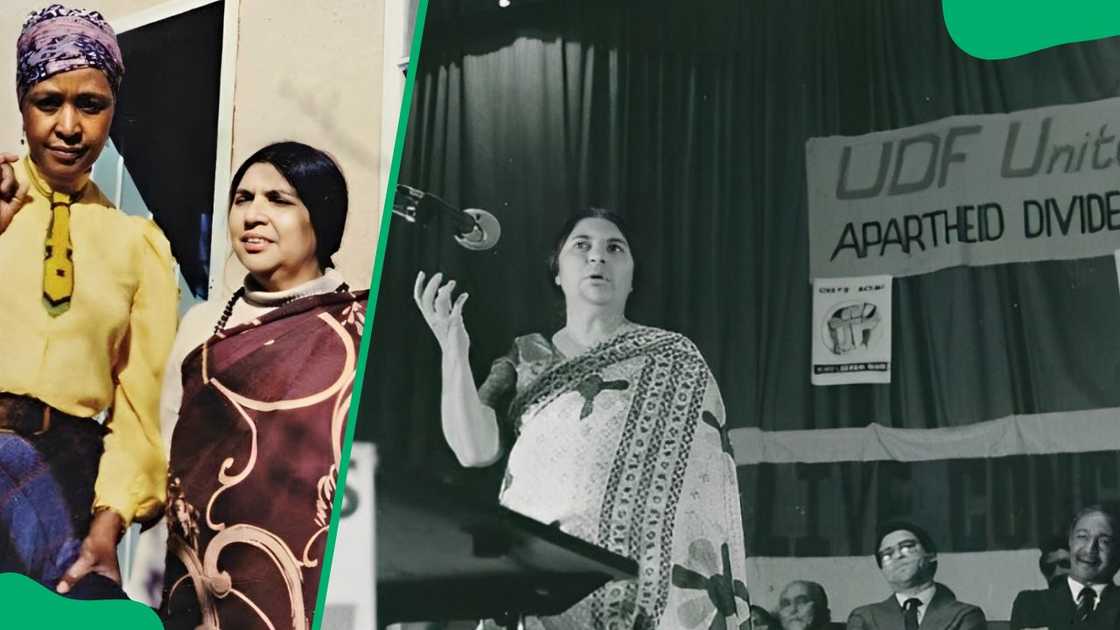
Source: Twitter
In 1996, she helped 150 Black women attain adult literacy, sewing and business management skills through her Khanya Women's Skill Training Centre.
Fatima Meer's most famous book is about Nelson Mandela
Meer's authorised biography of Nelson Mandela, titled Higher Than Hope, was published in 1990. Below are some of her other books and their ratings per Goodreads:
- The Apprenticeship of a Mahatma (1970)
- Race and Suicide in South Africa (1976)
- Resistance in the Townships (1989)
- Passive Resistance, 1946: A Selection of documents (1996)
- Fatima Meer: Memories of Love and Struggle (2017)
She was the first non-White sociology lecturer at the University of Natal
Fatima was a staff member of this institution from 1956 to 1988. She founded the Institute for Black Research, an educational NGO. Some of Meer's honorary doctorates include one in Humane Letters from Bennet College and another in Philosophy from Swarthmore College.
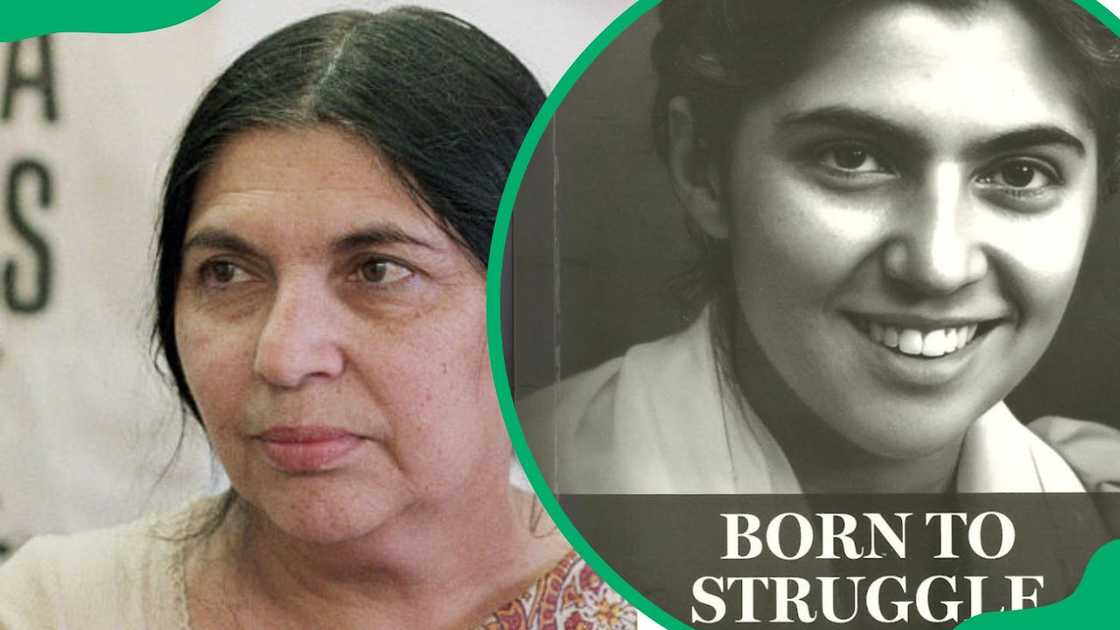
Source: UGC
FAQs
Fatima Meer was awarded the Order of Luthuli in Silver in 2017. Here are some frequently asked questions about her:
Who was Fatima Meer's husband?
Fatima exchanged nuptials with her first cousin, lawyer and activist Ismail Meer, in 1950. Sadly, their only son, Rashid, died in a car accident in 1995. One of the pair's daughters, Shamim, is a social science consultant, while the other, Shehnaz, is a Land Claims Court judge.
How did Fatima Meer die?
The anti-apartheid activist died of a stroke on 12 March 2010 at St. Augustine Hospital in Durban, South Africa. She was 81.
Fatima Meer was one of South Africa's most prominent female leaders in the mid-20th century. She was best known for her lifelong dedication to human rights and social justice and her struggle against oppression during the apartheid era.
READ ALSO: Mandla Msibi's biography: Get to know the South African politician
Briefly.co.za discussed Mandla Jeffrey Msibi, a South African politician and educator who has served in the Mpumalanga Provincial Legislature since 2019.
The South African politician was born and raised in Daantjie, Transvaal Province, now Mpumalanga, South Africa. As an ANC member, he has held key MEC roles in governance and agriculture.
Source: Briefly News




